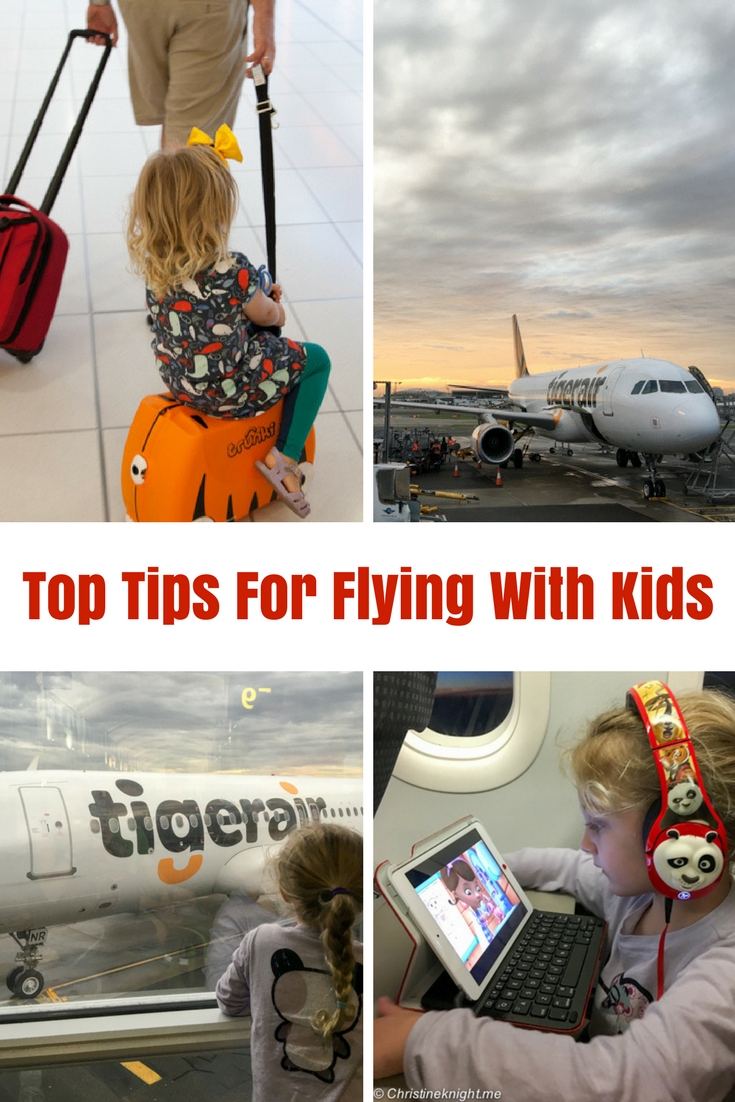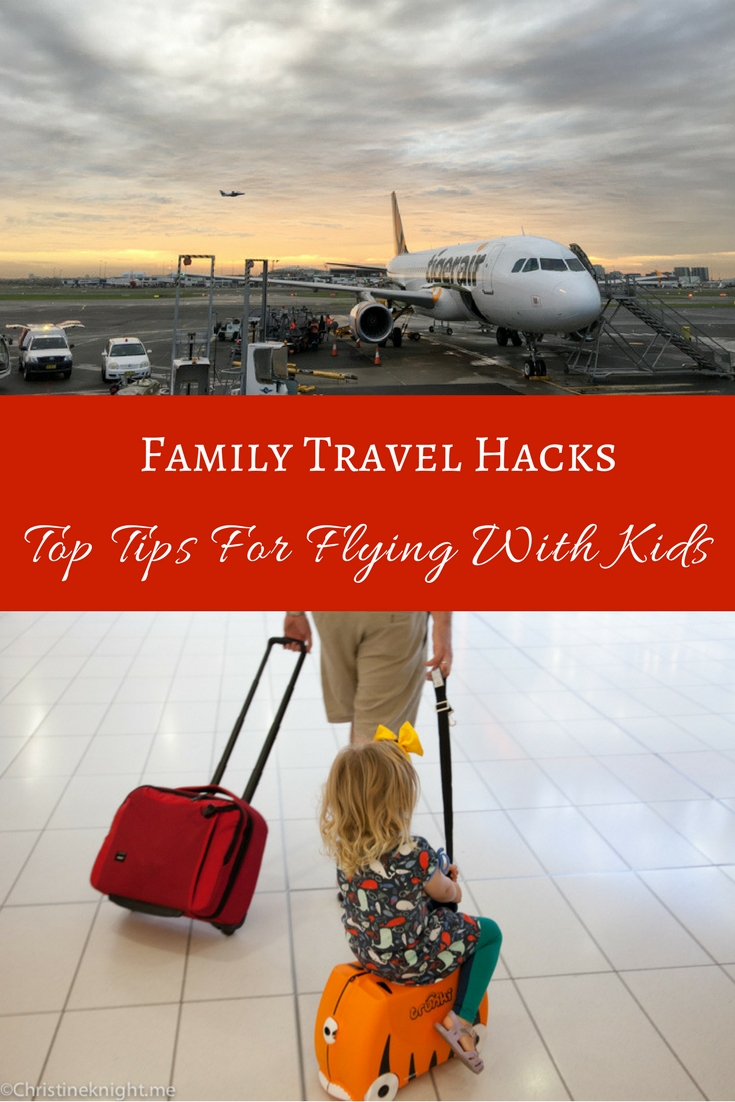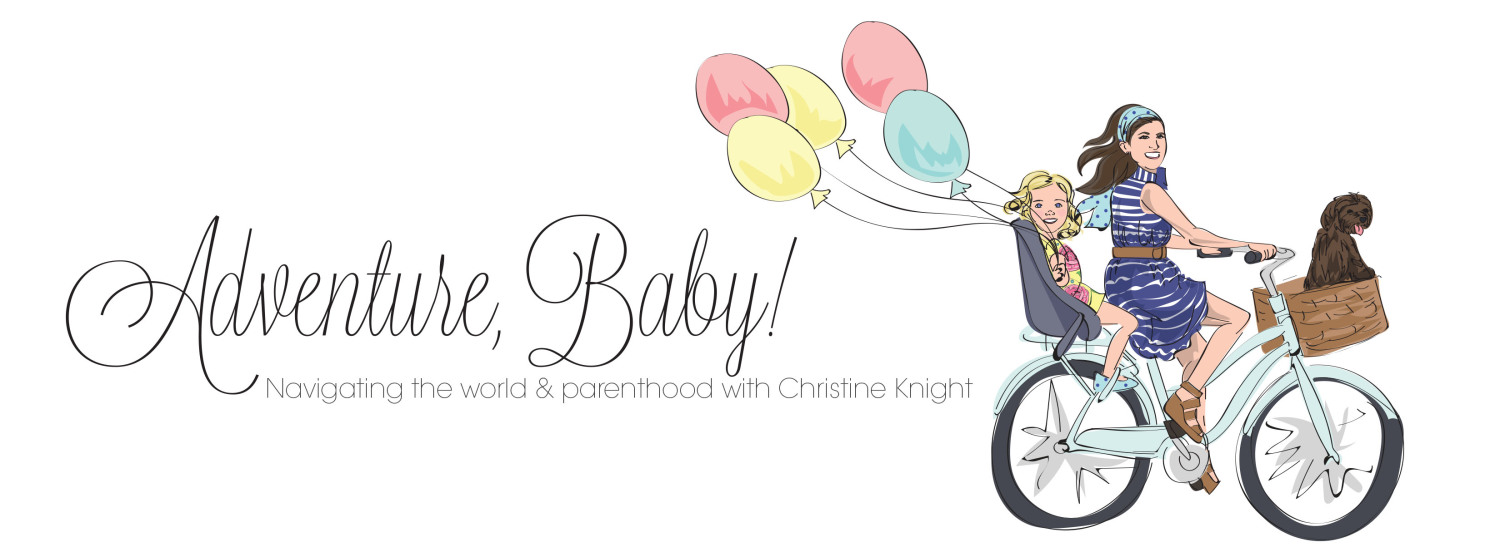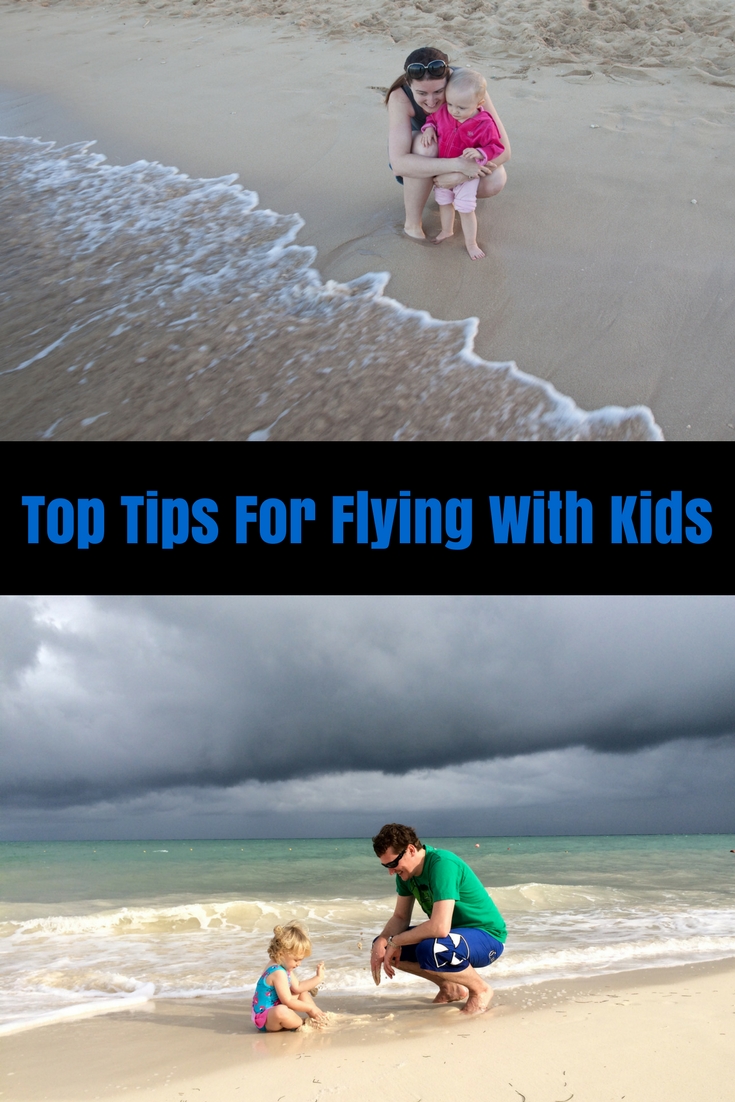
Flying with kids can be a stressful experience. There, I’ve said it. As a mum who has flown with her baby, toddler, preschooler and now grade schooler many times over the years, I can tell you that the better prepared you are, the easier it is, and, thankfully, it just gets easier and easier – especially when you have a few tips for flying with kids to help you plan your trip.
I have partnered with Expedia.com.au to bring you these flying hacks, accumulated through years of flying with my own tricky traveller, to help you and your family enjoy (or, let’s be honest, survive!) your next flight with kids.”
Travel Hacks: Top Tips For Flying With Kids
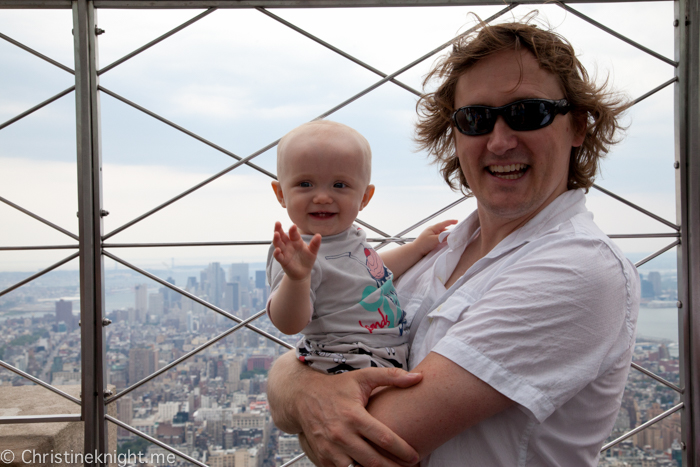
Flying with a baby
Ticketing rules for babies
In the aviation world, a baby or infant is a child under the age of two years old. They can be carried on an adults’ lap or placed in a bassinet if available. They are not required to have their own seat purchased for them.
Bassinet requests
Request a bassinet from your airline at the time you book your flight. Note: a bassinet is never guaranteed. If you have a large baby, check the dimensions of the bassinet on the airline’s website to check your child will fit.
Taking car seats on board
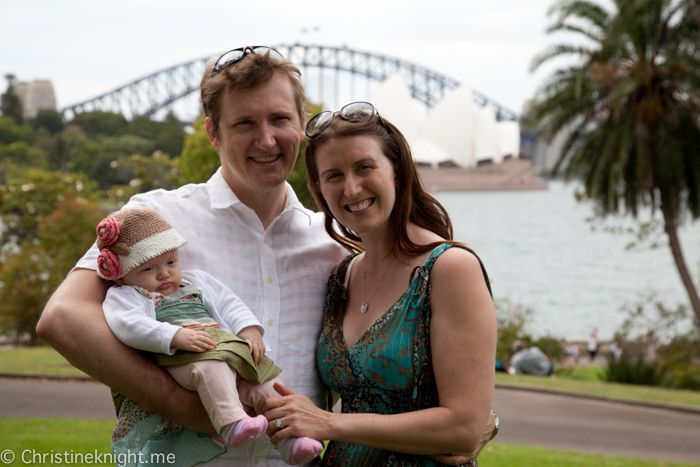
Flying and ear pressure
Bring lots of extra clothes
Pack plenty of extra clothes for you and the baby, and double the nappies and wipes you think you might need. Bring antibacterial wipes to clean all surfaces.
Baby food on board
Request a baby meal if available on your flight at least a week before takeoff and if your baby is eating solids, bring plenty of snacks and food they will reliably eat. Some airlines, like Qantas, will provide a limited range of top brand baby food, milk, baby bottles, cereals and rusks.
Infants and liquids
Babies have special allowances made for them regarding liquids being brought on board. There is no hard limited however which makes it tricky to work out how much to take.
The rules from Qantas state:
Passengers travelling with an infant or toddler are permitted to carry a reasonable quantity of liquid, aerosol or gel products for the infant or toddler onboard for the duration of the flight and any delays that might occur. A ‘reasonable quantity’ will be at the discretion of the security screening officer at customs.
Baby products may include, but are not limited to:
- baby milk, including breast milk;
- sterilised water;
- juice;
- baby food in liquid, gel or paste form; and
- disposable wipes.
Products such as baby milk powder that are not liquids, aerosols or gels can be taken onboard.
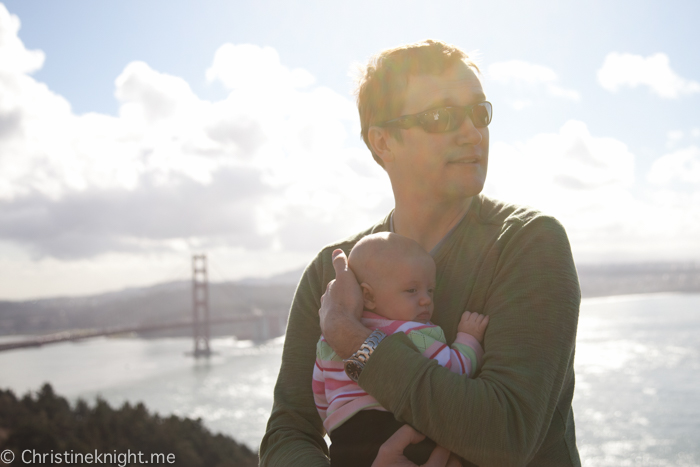
Baby carriers and slings
Since our baby had bad reflux and wouldn’t sleep in a bassinet, we used a baby carrier or sling when we flew so we could hold her and still have our hands free. I highly recommend one if your baby is similar.
Babies and passports
Baby gear luggages allowances
While generally children have the same carry-on and checked-in luggage allowances as adults, they can also include a collapsible stroller, car seat and collapsible cot or bassinet. Check with your airline before flying.
Looking at which stroller to buy for travel? Here are the best strollers to choose from.
Flying with a toddler
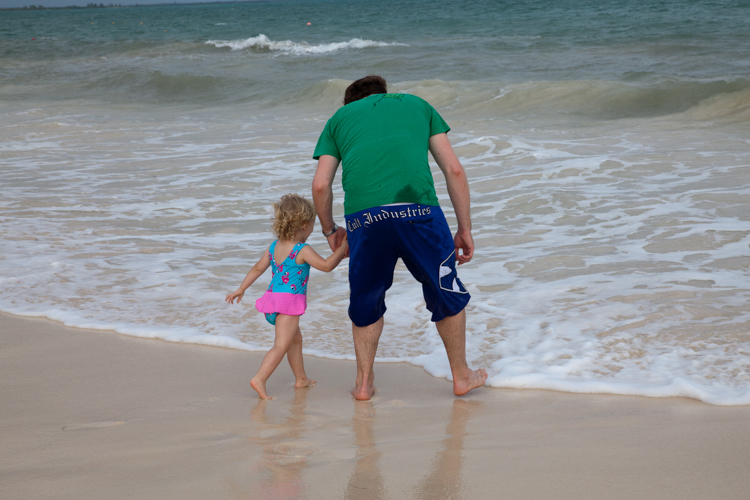
Ticketing rules for toddlers
Children aged two and over are classified as a toddler and require their own seat to be purchased.
Toddler gear luggages allowances
While generally children have the same carry-on and checked-in luggage allowances as adults, they can also include a collapsible stroller, car seat and collapsible cot or bassinet. Check with your airline before flying.
Bring extra clothes a blanket
Pack plenty of extra clothes for your toddler, including pjs if it’s an overnight flight, and double the nappies and wipes you think you might need. Bring antibacterial wipes to clean all surfaces. We always pack our own blanket too as airplane ones are not regularly cleaned.
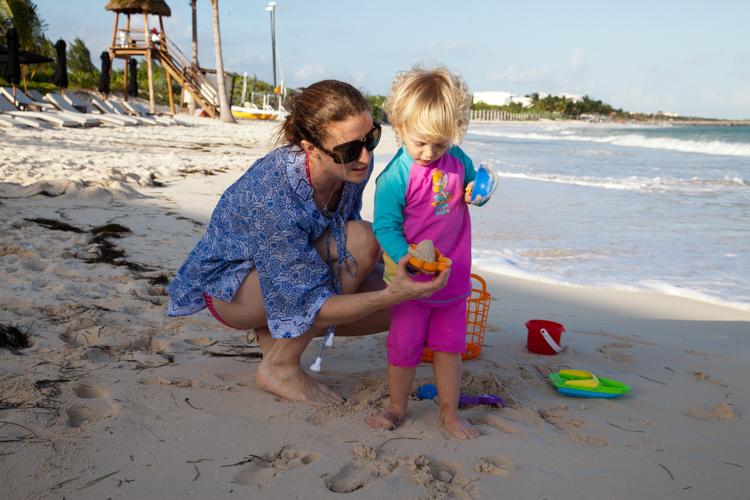
Toddler food on board
Request a toddler or child’s meal if available on your flight at least a week before takeoff and bring plenty of snacks and food they will reliably eat. Bring an empty refillable water bottle and fill it as soon as you’re through the security check.
Sleep aids
A range of sleep aids have come on the market of late to help kids sleep on planes. They include Fly LegsUp, the Plane Pal, 1st Class Kids and the JetKids BedBox. The aids are devices that hang from the tray table, or are a blow up cushion / hard box with cushion on top that extend the seat for kids to lie down flat.
Some airlines have banned the use of sleep aids on flights so check with your airline before purchasing one.
Read a review on the BedBox here.
Toddlers and liquids
Infants and toddlers have special allowances made for them regarding liquids being brought on board. There is no hard limited however which makes it tricky to work out how much to take. The rules from Qantas state:
Passengers travelling with an infant or toddler are permitted to carry a reasonable quantity of liquid, aerosol or gel products for the infant or toddler onboard for the duration of the flight and any delays that might occur. A ‘reasonable quantity’ will be at the discretion of the security screening officer at customs.
Baby products may include, but are not limited to:
- baby milk, including breast milk;
- sterilised water;
- juice;
- baby food in liquid, gel or paste form; and
- disposable wipes.
Products such as baby milk powder that are not liquids, aerosols or gels can be taken onboard.
Entertaining toddlers
Take lots and lots and lots to keep this tricky age entertained. Stickers, small toys, Play Doh, crayons, magnets etc, and dole them out one by one. If you have an iPad, fill it with new videos and games. Bring child-sized noise restricting headphones. Some airlines will hand out excellent kids’ entertainment packs, but they are never guaranteed.
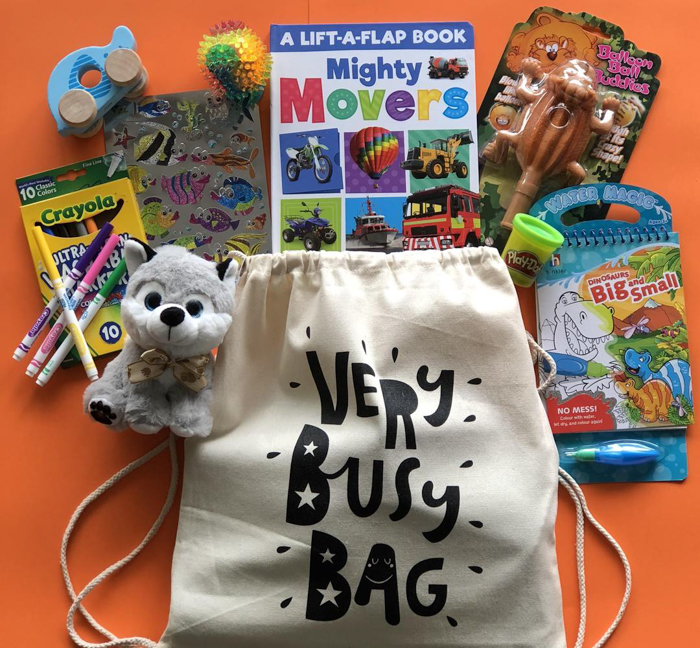
I also like the Very Busy Bag made by a Sydney mum for flying with toddlers – it has 10 activities for kids aged 2-3 in a cute, reusable bag.
Flying with a preschooler / grade schooler
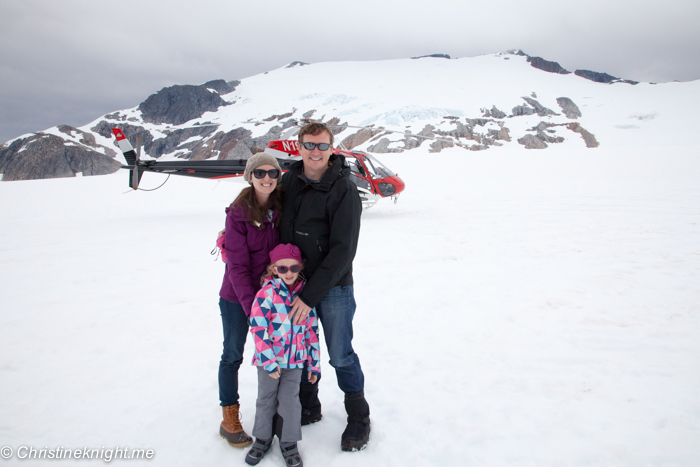
This is the jackpot age for travelling with kids! Travel suddenly gets a whole lot simpler when they hit age four or five.
Kids and food on flights
Request a child’s meal at least a week before departure. If you have a picky kids like I do, pack their own meals and bring an empty refillable water bottle to be filled once you pass through the security screening.
Kids and seating
Check that you have all been allocated seating together with the airline or travel agent, and check again at the airport. You might need to request seating in advance which may incur an additional fee. It’s not guaranteed that you will be seated together with your kids.
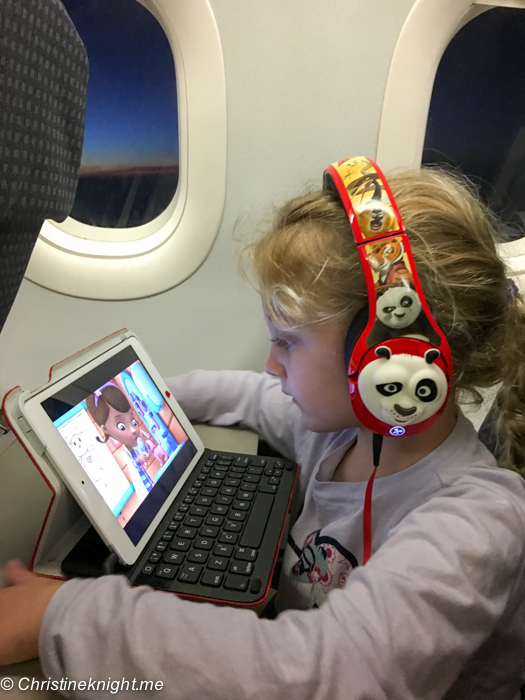
Entertaining kids on board
Pack a bag that contains whatever they need to occupy themselves: iPad, child-sized noise-restricting headphones, books, drawing pad, etc.
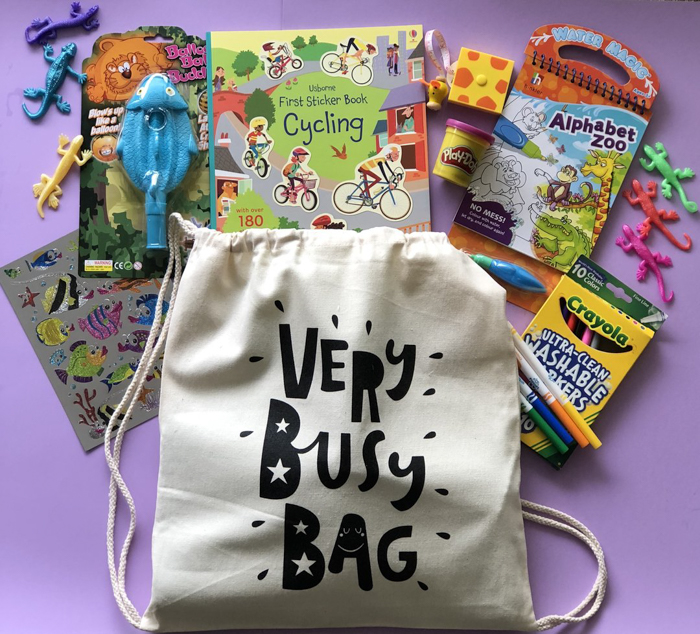
I also like the Very Busy Bag made by a Sydney mum for flying with toddlers – it has 10 activities for kids aged 3-5 in a cute, reusable bag.
